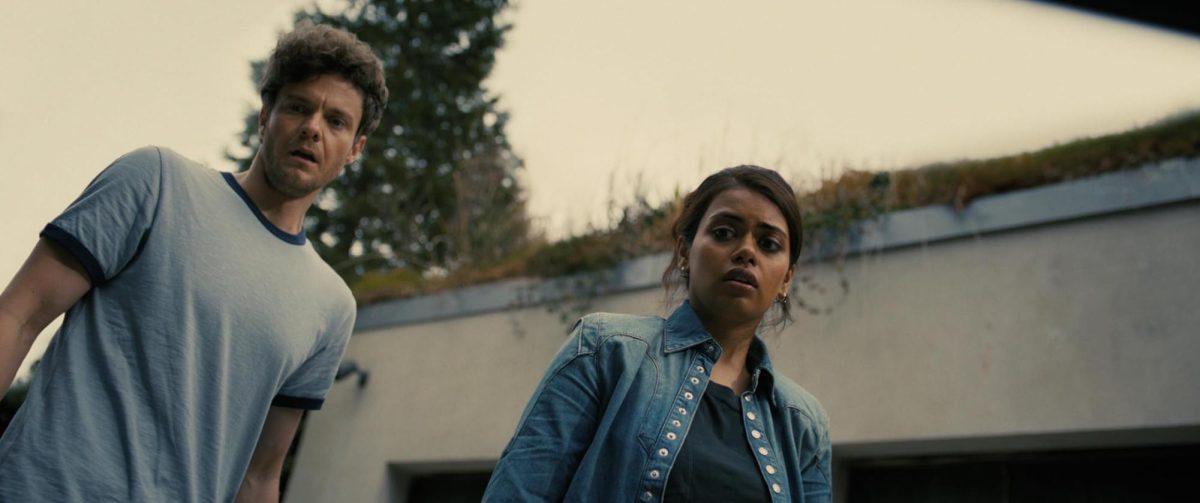Rating: 6.5/10
After nearly eight years, “Paddington in Peru” arrives with the beloved bear embarking on a new adventure. The much-anticipated film struggled to recapture the heart and charm of its predecessors.
Fans had high expectations for Dougal Wilson’s sequel following the critical and audience acclaim of the first two “Paddington” films. However, the film struggled to replicate warmth and careful storytelling that made its predecessors so beloved. “Paddington in Peru” stumbled under the weight of its ambitions.
The film rushes through emotional beats, leaving its most compelling themes underdeveloped. It follows Paddington (Ben Whishaw) as he journeys to Peru to visit his Aunt Lucy (Imelda Staunton), but what should be a heartfelt reunion is overshadowed by a breakneck pace.
Unlike the carefully crafted emotional arcs of the previous films, this installment barrels through its narrative, leaving audiences struggling to connect with its characters. The spectacle takes priority over character development, weakening the film’s emotional impact.
Get The Daily Illini in your inbox!
One of the film’s most intriguing elements is its exploration of identity and belonging — ideas that deeply resonate with immigrant experiences. Paddington, caught between his life in London with the Browns and his roots in Peru, shows the struggle of navigating two cultures.
However, instead of fully committing to this theme, the film sidesteps its emotional potential in favor of chaotic adventure sequences reminiscent of “Indiana Jones.” These high-energy moments overshadow the heartfelt storytelling that defined the franchise.
Visually, the movie shines, particularly in its breathtaking shots of Peru’s landscape. The rich cultural details — like the quipu bracelet and huacos — highlight the country’s deep history and traditions. Yet, these elements feel underutilized.
A rapid montage reduces Paddington’s time in Peru to little more than a brief stop rather than a meaningful journey. The film’s rushed structure prevents the audience from fully appreciating the setting and its significance to Paddington’s story.
Tonally, “Paddington in Peru” struggles to find balance, swinging between heartfelt moments and exaggerated comedy in a way that often feels forced. Where the first two “Paddington” films seamlessly blended humor and sincerity, this sequel leans too heavily into goofiness.
Themes of family, change and identity are present but are always handled with finesse. Paddington, like many immigrants, grapples with feeling torn between two places, while the Browns confront their own transitions, particularly the idea of an “empty nest.”
A poignant line —“On gray days, hope is the way”— encapsulates the film’s optimism. Sadly, much of its emotional impact is overshadowed by the film’s excessive humorous elements. The imbalance of humor and sincerity weakens the film’s most touching moments.
Antonio Banderas’ energetic portrayal of Hunter Cabot ends up overshadowing the titular character and the Brown family, who consequently receive significantly less screen time.
His performance, marked by an intense, relentless obsession with gold, makes for a compelling yet overwhelming presence. Haunted by the ghosts of his ancestors and driven by ambition, his character’s arc teeters on the edge of melodrama.
The focus on Cabot’s personal turmoil diverts attention from the heart of the story, diluting the emotional depth that should have been centered around Paddington’s journey.
The overuse of slapstick comedy undercuts the film’s emotional weight, making key moments feel less impactful. The soundtrack further adds to this inconsistency. Odd musical selections distract rather than enhance the movie’s storytelling.
Olivia Colman’s role as the Reverend Mother also leans heavily into comedic absurdity. Scenes that reference “The Sound of Music” push the humor so far that it loses its charm.
Like Banderas, Colman has significant screen time, but her character feels out of place in the film’s world. The final reveal and plot twist attempts to set her character’s place straight but ultimately falls flat.
Despite its missteps, “Paddington in Peru” still carries moments of warmth and meaning. Quotes like “leaving doesn’t always mean forever” resonate with people facing the bittersweet transitions of growing up or moving on.
Whether it’s Paddington navigating his dual identities, an immigrant longing for home or a student leaving for college, the film captures the universal push and pull of belonging. However, its rushed execution and scattered focus make it a weaker addition to the franchise.
Ultimately, “Paddington in Peru” tried to do too much and lost sight of what made the previous films so special. Audience members leaving the theater voiced disappointment, with many expressing that “Paddington 2” remains the superior film.
The film’s themes of found family, identity and change are strong. However, a frenzied pace and an overstuffed plot bury them, stripping away the warmth and charm that made Paddington a cinematic icon.









